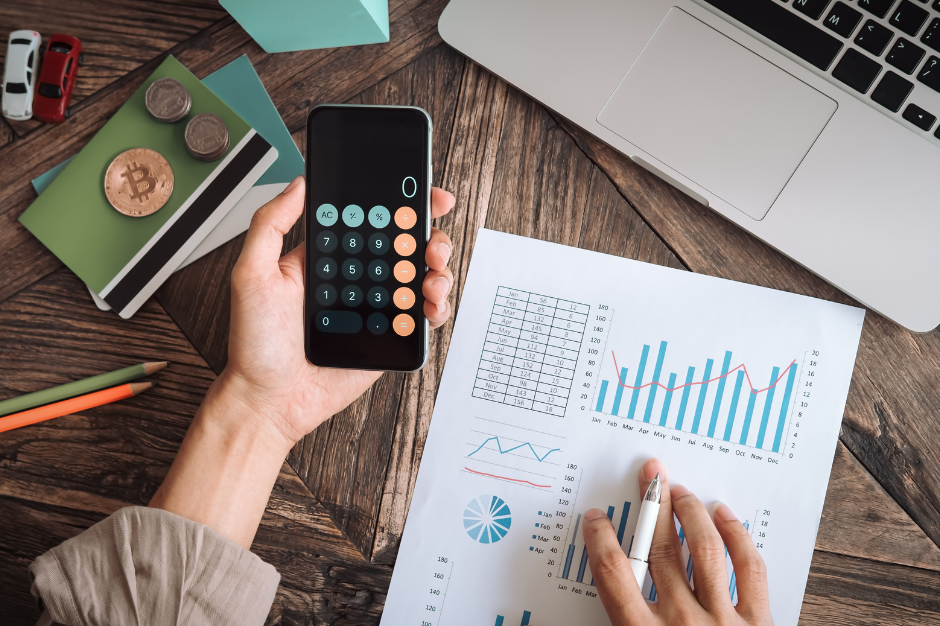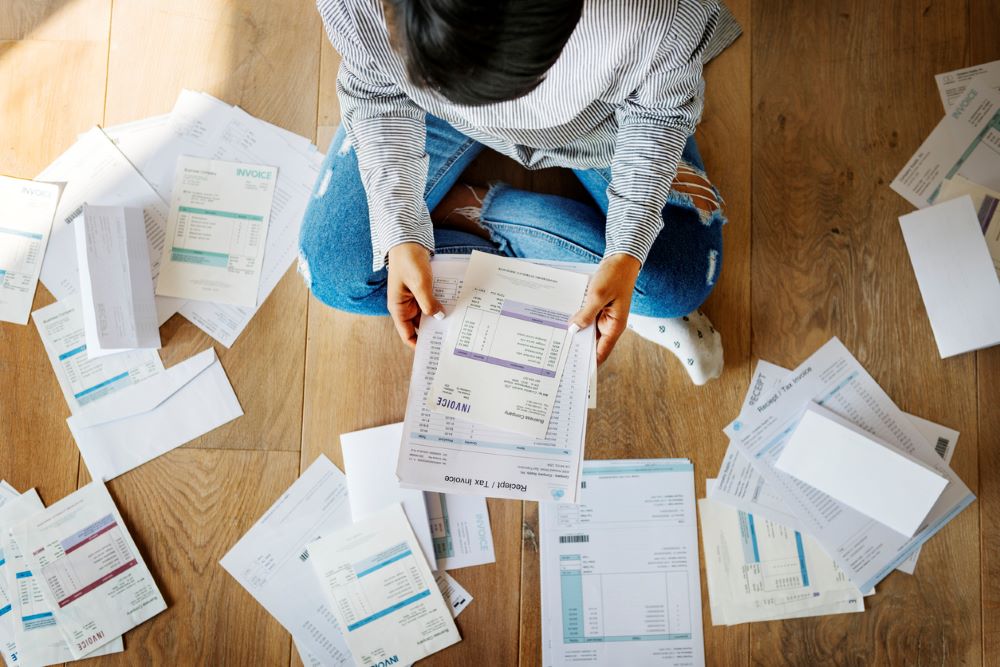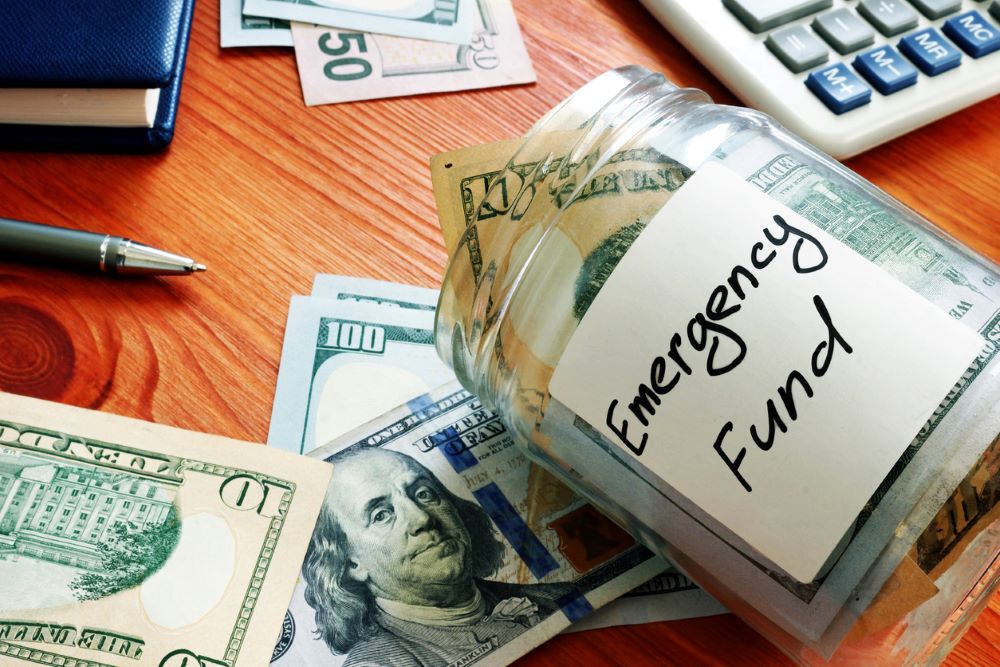Recent Articles

Why It’s Important to Create a Budget as a College Student
Most college students simply can’t afford to ignore the importance of budgeting their money while working toward an education. Expenses such as tuition, room and board, monthly utility bills, books, food, and transportation costs can quickly add up and become impossible to manage when you aren’t carefully monitoring your finances. By budgeting your money as a college student, you can help ensure you have sufficient funds to cover your costs...

Financial Literacy Month: Tips to Build Credit Fast and Effectively
April is Financial Literacy Month. It’s a great time to work on your financial health and improve your credit score. Here is more information on Financial Literacy Month along with some simple steps to take to raise your credit scores. What is Financial Literacy Month? Financial Literacy Month is a yearly event held in April that promotes the importance of financial education. The awareness month aims to teach people how to manage their money...

What Is a Charge-Off and What Does It Mean for Your Credit?
If you're trying to understand how credit works, you might have come across the term "charge-off." A charge-off is an important concept to understand because it can significantly impact your credit score and financial health. In this blog, we explain a charge-off, how it happens, and what it means for your credit. What is a Charge-Off? A charge-off is a term used in the credit industry to describe an account declared uncollectible by a lender....

Why Do You Need to Check All Three Credit Reports?
If you haven't noticed, your credit report includes your credit card accounts, loans, payment history and more. Collectively this information determines your credit scores. It’s important to know what is in your credit history to ensure the information is fair and accurate, stay on top of your credit score, look for ways to help your credit and watch out for fraudulent activity. But keeping an eye on one credit score with a single credit...

Does Credit Card Fraud Affect Your Credit Score?
Credit card fraud involves someone using another person's credit card information to purchase goods and services illegally without their knowledge. Credit card fraud is a very common form of identity theft that has existed for a long time. As the use of credit cards has increased over time, so has the credit card fraud rate. In 2021, the Federal Trade Commission received close to 390,000 reports of credit card fraud. In this blog, we explain...

What is a Good Length of Credit History?
Have you ever wondered how long your credit history should be? Is there an ideal length? Does the length of your credit history affect your credit scores? This blog explains what your credit history is and how it affects your credit scores. What is Credit History? Your credit history is a huge component of your credit report. Your credit history helps calculate your credit scores. Your credit history is used to help determine if you’re a good...

Why Do I Have Different Credit Scores?
Have you ever wondered why you have different credit scores from all three major credit bureaus? Let us help explain. The information that gets reported to each credit bureau can be different. And your credit scores might be calculated by different scoring models. So how do you know which credit score to follow? Or which score is more important? Read on for more information. Why Do I Have Multiple Credit Scores? As we all know, credit scores...

What is Tax Debt and How to Handle It
What is Tax Debt? Tax debt is any tax that you owe the IRS. This includes forgetting to pay, file, or even making a mistake on your taxes. Here we help explain tax debt and the best ways to handle it. How Do I Know If I Have Tax Debt? Here are a few ways to know if you owe back taxes to the IRS. Notice Via Mail The IRS may send a notice to you for various reasons. For example, you might receive a notice for balances owed, a request for...

Should I Pay My Tuition with a Credit Card?
Paying for tuition is costly. A college education comes with a hefty price tag, making students wonder how they can cover the cost. That often can lead to the idea of paying tuition with a credit card. While you can pay tuition with a credit card, make sure it's right for you. This blog explores key factors you should consider before using a credit card to pay for tuition. When It Does (and Doesn’t) Make Sense to Pay Tuition with a Credit Card...

5 Easy Steps to Plan an Emergency Fund
When you least expect it, emergencies happen. Whether big or small, they are unexpected and can severely strain an individual and their financial well-being. Preparing an emergency fund, an account for money to be placed aside to cover unexpected expenses can help you stay on your feet when an emergency occurs. What Is an Emergency Fund? An emergency fund is a sum of money set aside to cover financial surprises that may come your way. This...
Premier Credit Monitoring.
Receive premier credit monitoring and identity theft insurance for you and your family with our MAX plan.**










